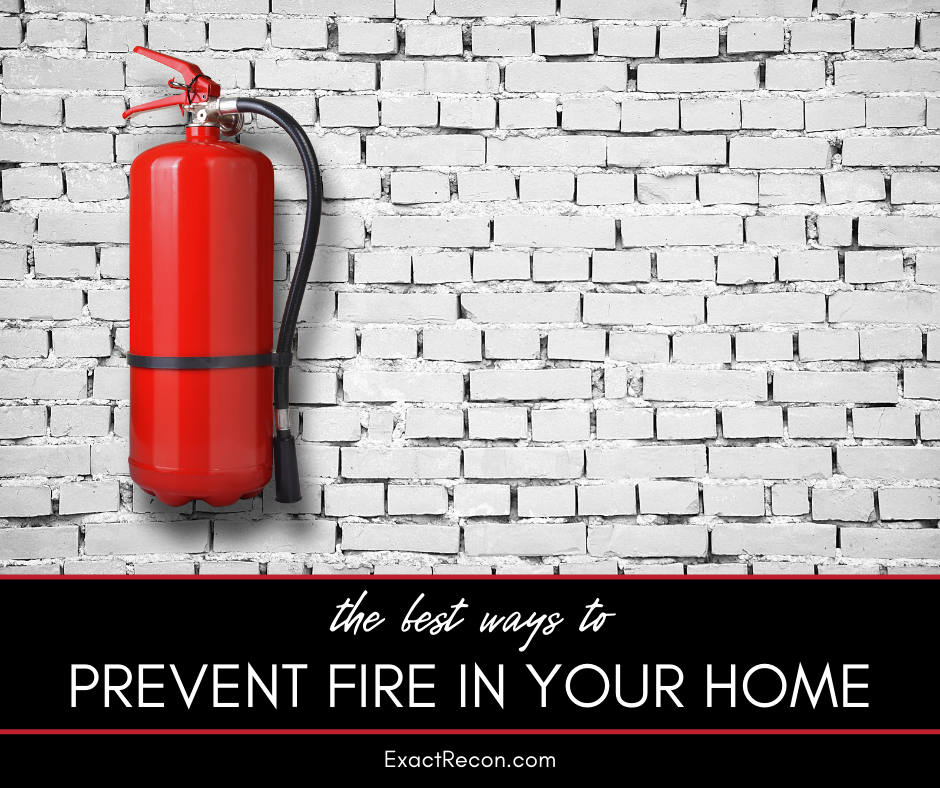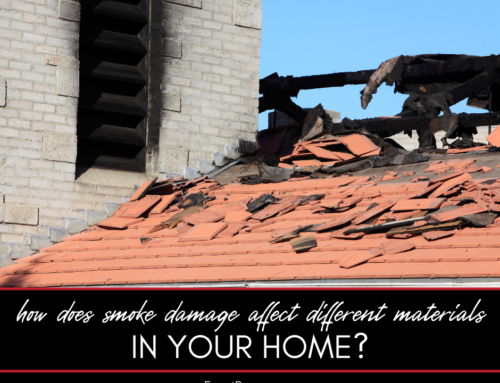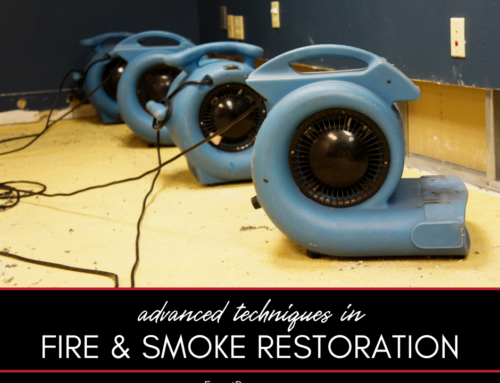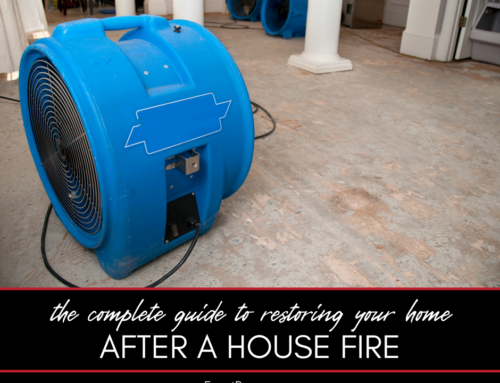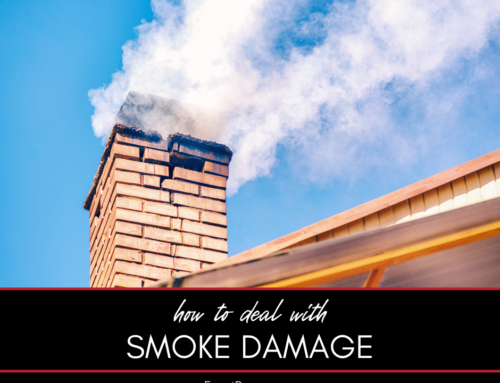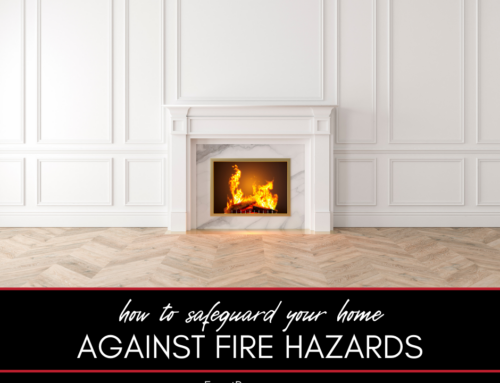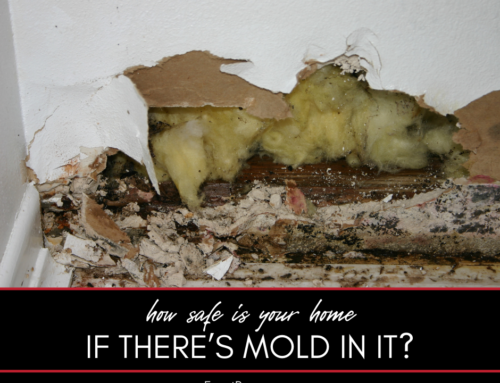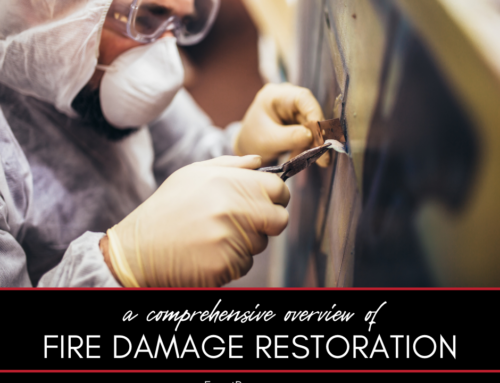Fire can wreak havoc on your home in a matter of minutes, but with proper knowledge and precautions, you can minimize the risk. In this guide, we’ll look at the best ways to prevent fire in your home.
Best Ways to Prevent Fire in Your Home
Within this guide, you’ll discover practical, actionable steps you can take to greatly reduce the chance of a fire starting in your home. We’ll cover the following topics:
- Understanding common fire hazards in the home
- Safe cooking practices
- Safe electrical usage
- Smoke detectors and fire extinguishers
- Creating a fire escape plan
Here’s a closer look at each.
Understanding Common Fire Hazards in the Home
Many fires start due to common household items or behaviors. Knowing these fire hazards can help you avoid them.
Fire hazards can exist in any part of your home. Common household items, if mishandled or left unchecked, can create situations that lead to house fires. For instance, appliances left unattended or malfunctioning, smoking indoors, candles, space heaters without automatic shut-offs or overloading power outlets. One of the main steps towards preventing a fire in your home is recognizing and addressing these potential fire hazards.
Related: What to do about fire damage in your home
Safe Cooking Practices
Cooking fires are indeed one of the most common types of fires in homes. It’s important to never leave cooking unattended. Other safe cooking habits include keeping flammable items like towels or wooden spoons away from the stovetop, turning pot handles inward so they can’t be knocked over, and regularly cleaning ovens and stovetops to prevent grease buildup. Also, always have a lid nearby when you’re cooking to smother small grease fires if they pop up.
Safe Electrical Usage
Faulty wiring, overloading power outlets or extension cords, and misuse of electrical appliances are all common causes of electrical fires. To prevent these, ensure all electrical installations are done by a professional. Don’t overload outlets or power strips and avoid using damaged cords. Unplug appliances when they’re not in use and give them plenty of space for air circulation to prevent overheating.
Related: Why DIY mold remediation may be a bad idea
Smoke Detectors and Fire Extinguishers
Smoke detectors are essential for early detection of fires, while fire extinguishers can help you control a fire before it spreads. Ensure you have enough smoke detectors installed in your home, particularly in bedrooms and the kitchen. Test them monthly, replace batteries yearly, and get a new unit every 10 years. On the other hand, keep an easily accessible fire extinguisher in your home, especially in the kitchen. Learn how to use it properly and check periodically to make sure it’s still in working condition.
Creating a Fire Escape Plan
In the unfortunate event of a fire, having a well-planned escape route can save lives. Your plan should include two exits from every room in your home, a path to the outside from each exit, and a safe meeting place a safe distance from your home. Make sure all household members know the plan, and practice it regularly, so everyone knows what to do even in the stress of a real fire.
Related: How to prepare for Michigan’s tornado season
Remember, the key to fire safety is prevention, preparedness, and understanding potential risks in your home. By taking these steps, you can protect your home and loved ones from the devastating impact of fires.
FAQ About Preventing Fire in Your Home
Here are some frequently asked questions about preventing fire in your home. If you don’t see the answers you’re looking for here, please call our office. We’re here to help.
What is the most common cause of residential fires?
Cooking is the leading cause of residential fires, often due to unattended stoves or flammable items near the heat source.
How often should I check my smoke detectors?
You should test your smoke detectors monthly and replace the batteries at least once a year.
Related: How to identify and prevent mold growth in your home
Is it safe to use extension cords permanently?
No, extension cords are meant for temporary use. Long-term use can lead to overheating and potentially a fire.
Can a candle really start a house fire?
Absolutely. Never leave a burning candle unattended and keep it away from flammable materials.
What should I include in my fire escape plan?
Include two ways out of every room, a meeting place outside, and practice the plan with all household members regularly.
Remember, fire prevention doesn’t stop after you’ve implemented these strategies. It’s an ongoing commitment to safety and vigilance. So, stay safe and stay informed, and if you have any concerns or questions about fire safety, don’t hesitate to reach out to us.
Do You Need a Disaster Remediation Expert in Washtenaw County or Jackson County?
If your home has already been damaged, we can help. Check out our services and call Exact Recon for your free disaster remediation quote today. We offer:

